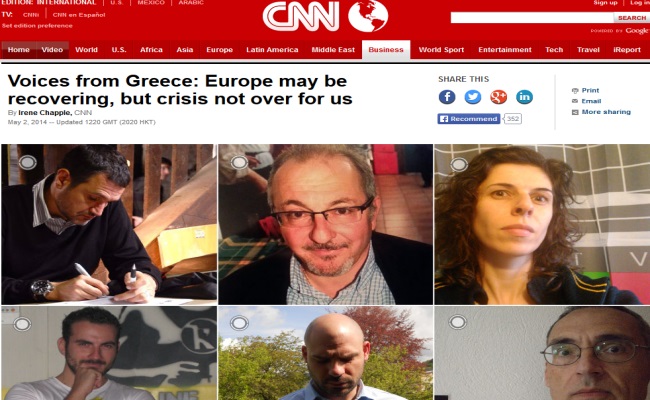By CNN
The eurozone is emerging from its devastating debt crisis but life in Greece — where the bloc's financial meltdown began — remains a struggle for many.
CNN has tracked a group of Greek citizens since 2012, and revisited them* for an update on life in the country after years of austerity. They told CNN wages continue to be cut, healthcare is suffering and that leaving the country can seem the only option.
George Pentafronimos, an IT consultant who left Greece to live in Luxembourg, says leaving the country was one of the most difficult decisions he's made, but one he doesn't regret.
Others, like Manos Kallimikrakis, have stayed but lost their jobs as cutbacks kicked in. Kallimikrakis has struggled to survive on savings and family support, and says the country needs a new economic model.
Greece, bailed out in 2010 then again in 2012 at a combined cost of 240 billion euros, returned to the bond markets in April, raising three billion euros on robust demand.
Economic indicators suggest it is slowly emerging from six years of recession, with unemployment figures released Friday showing a slight dip from 27.2% in December, to 26.7%. Greek unemployment remains the highest in the eurozone, above Spain at 25.3%.
Youth unemployment across the euro area has also dropped slightly, but remains highest in Greece, at 56.8%.
The figures come after demonstrators across the world took to the streets for May Day, or International Workers Day.
Those spoken to by CNN say life on the ground in Greece is frustrating and tough, and the economic figures do not capture the hardship of the austerity-hit economy.
According to Kostis Papaioannou, the austerity has fed dangerous social upheaval and he is hoping the country will soon reach and recover from "the point where it will not get worse." Click the buttons above to hear their stories.
*Three of the original nine interviewees were unavailable for interview.



















